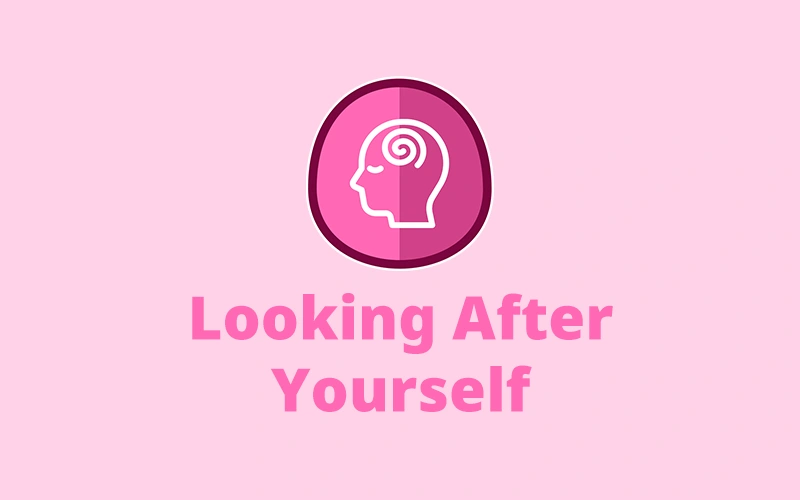Why Looking After Yourself Matters
Your wellbeing is not a luxury; it’s a fundamental pillar of a sustainable and fulfilling career. When you prioritise your physical and mental health, you enhance your productivity, resilience, and overall job satisfaction.
Prioritising Your Wellbeing Benefits Individuals by:
- Increased Productivity and Focus: When you’re rested and healthy, you’re better able to concentrate, solve problems, and perform at your best.
- Reduced Stress and Burnout: Implementing self-care strategies helps you manage workplace pressures and prevent burnout.
- Improved Physical and Mental Health: Taking care of yourself contributes to better physical health, reduced anxiety, and improved mood.
- Enhanced Resilience: Prioritising wellbeing equips you with the emotional and mental strength to navigate challenges and setbacks.
- Greater Job Satisfaction: A healthy work-life balance contributes to a more positive outlook and increased enjoyment of your career.
For Organisations, Employees Who Look After Themselves Translate to:
- Lower Absenteeism and Presenteeism: Healthy and engaged employees are less likely to take sick leave and are more productive when they are at work.
- Increased Employee Morale and Engagement: A workplace culture that supports employee wellbeing fosters a more positive and engaged workforce.
- Reduced Healthcare Costs: Promoting employee wellbeing can lead to lower healthcare costs for the organisation.
- Improved Retention: Employees who feel valued and supported in their wellbeing are more likely to stay with the company long-term.
Key Elements of Looking After Yourself
1. Maintaining a Healthy Work-Life Balance:
-
- Setting Boundaries: Establishing clear boundaries between your work and personal life, including dedicated work hours and “off-limit” times for work-related communication.
Practice: Define your working hours and communicate them to colleagues. Resist the urge to check emails or engage in work tasks outside of these hours. - Prioritising Personal Time: Scheduling and protecting time for activities you enjoy, spending time with loved ones, and pursuing hobbies.
Practice: Block out personal time in your calendar just as you would important work meetings. Make this time non-negotiable. - Learning to Say No: Politely declining additional tasks or commitments when your workload is already full to avoid overextending yourself.
Practice: Practice saying “no” assertively but respectfully. Explain that you need to prioritise your current commitments.
- Setting Boundaries: Establishing clear boundaries between your work and personal life, including dedicated work hours and “off-limit” times for work-related communication.
2. Managing Stress Effectively:
-
- Identifying Stressors: Recognising the triggers and sources of stress in your work and personal life.
Practice: Keep a stress journal to track when you feel stressed and identify the contributing factors. - Implementing Stress-Reduction Techniques: Utilising strategies such as mindfulness, meditation, deep breathing exercises, or yoga to manage stress levels.
Practice: Explore different stress-reduction techniques and find one or two that resonate with you. Dedicate a few minutes each day to practice them. - Regular Physical Activity: Engaging in regular exercise to improve mood, reduce stress hormones, and boost overall wellbeing.
Practice: Aim for at least 30 minutes of moderate-intensity exercise most days of the week. Find an activity you enjoy to make it sustainable. - Sufficient Sleep: Prioritising getting adequate sleep to support physical and mental restoration.
Practice: Establish a regular sleep schedule and create a relaxing bedtime routine to improve sleep quality.
- Identifying Stressors: Recognising the triggers and sources of stress in your work and personal life.
3. Staying Motivated and Preventing Burnout:
-
-
- Setting Realistic Goals: Breaking down large goals into smaller, achievable steps to maintain a sense of progress and avoid feeling overwhelmed (building on our post about Personal Growth).
Practice: When faced with a big project, break it down into smaller tasks with deadlines. Celebrate small wins along the way. - Seeking Support: Reaching out to mentors, colleagues, friends, or family when you’re feeling overwhelmed or unmotivated.
Practice: Don’t hesitate to talk to someone you trust about your challenges. Seeking support is a sign of strength. - Recognising Your Accomplishments: Taking time to acknowledge and celebrate your successes, both big and small, to boost morale and maintain motivation. Practice: Keep a record of your achievements and take time to reflect on your progress. Reward yourself for reaching milestones.
- Continuously Learning and Growing: Engaging in activities that stimulate your mind and help you develop new skills to maintain engagement and a sense of purpose (as discussed in our Personal Growth and Digital Skills posts).
Practice: Identify areas of interest and seek out opportunities for learning and development, whether through courses, workshops, or self-study.
- Setting Realistic Goals: Breaking down large goals into smaller, achievable steps to maintain a sense of progress and avoid feeling overwhelmed (building on our post about Personal Growth).
-
Looking after yourself is not selfish; it’s self-preservation and a crucial investment in your long-term career success and overall happiness. By prioritising your wellbeing, you’ll be better equipped to navigate the demands of your career, thrive in the workplace, and enjoy a more balanced and fulfilling life.
Thank you for joining us on this journey through essential career skills. We hope this series has provided you with valuable insights and practical strategies for professional growth. Stay tuned in the coming months as we delve even deeper into specific topics we’ve touched upon, offering more focused guidance and actionable advice to further elevate your career.

